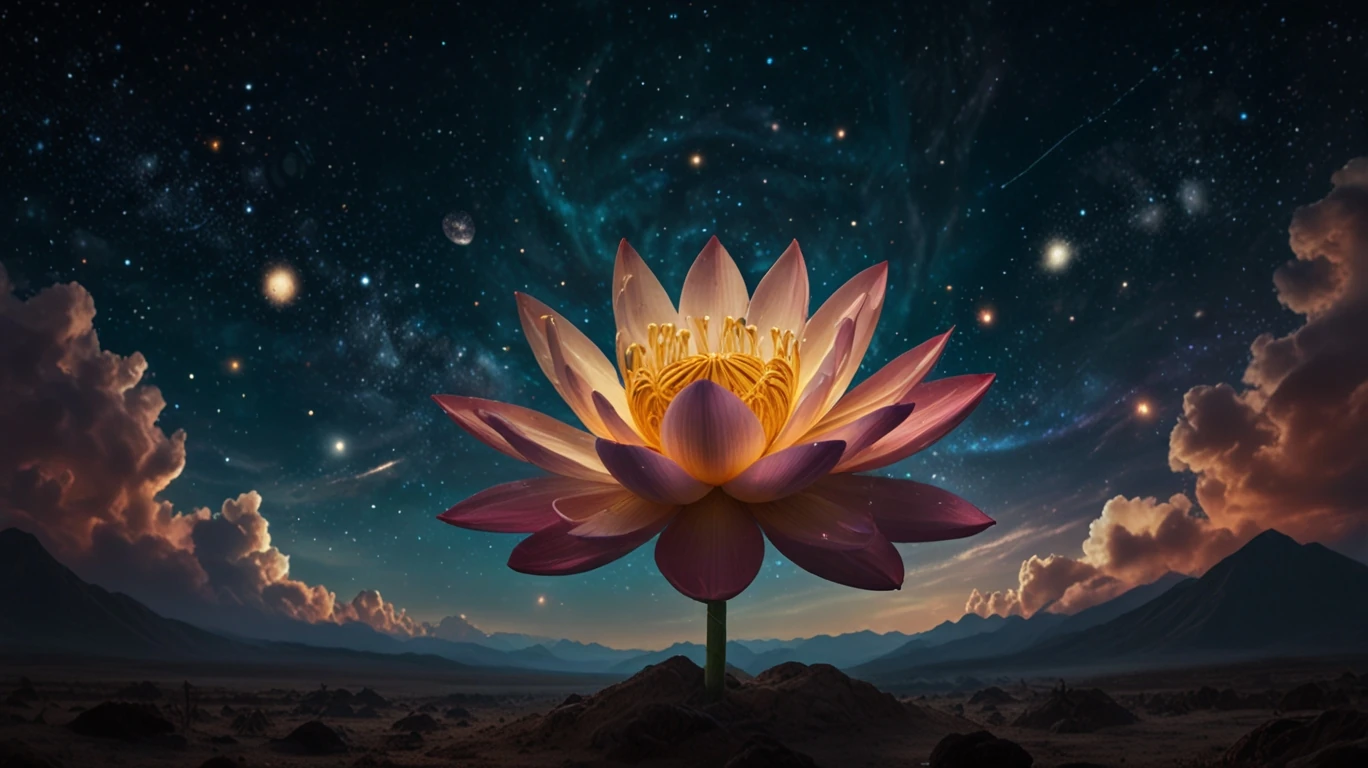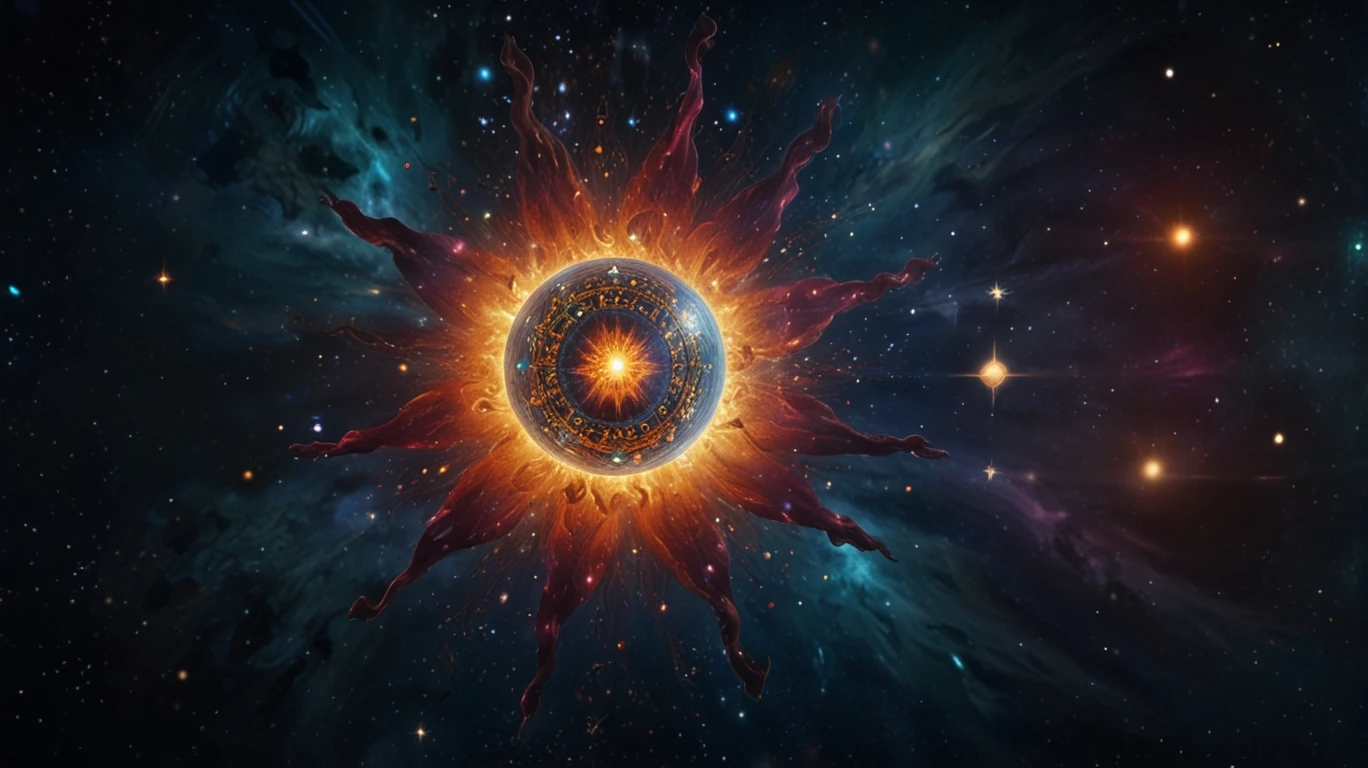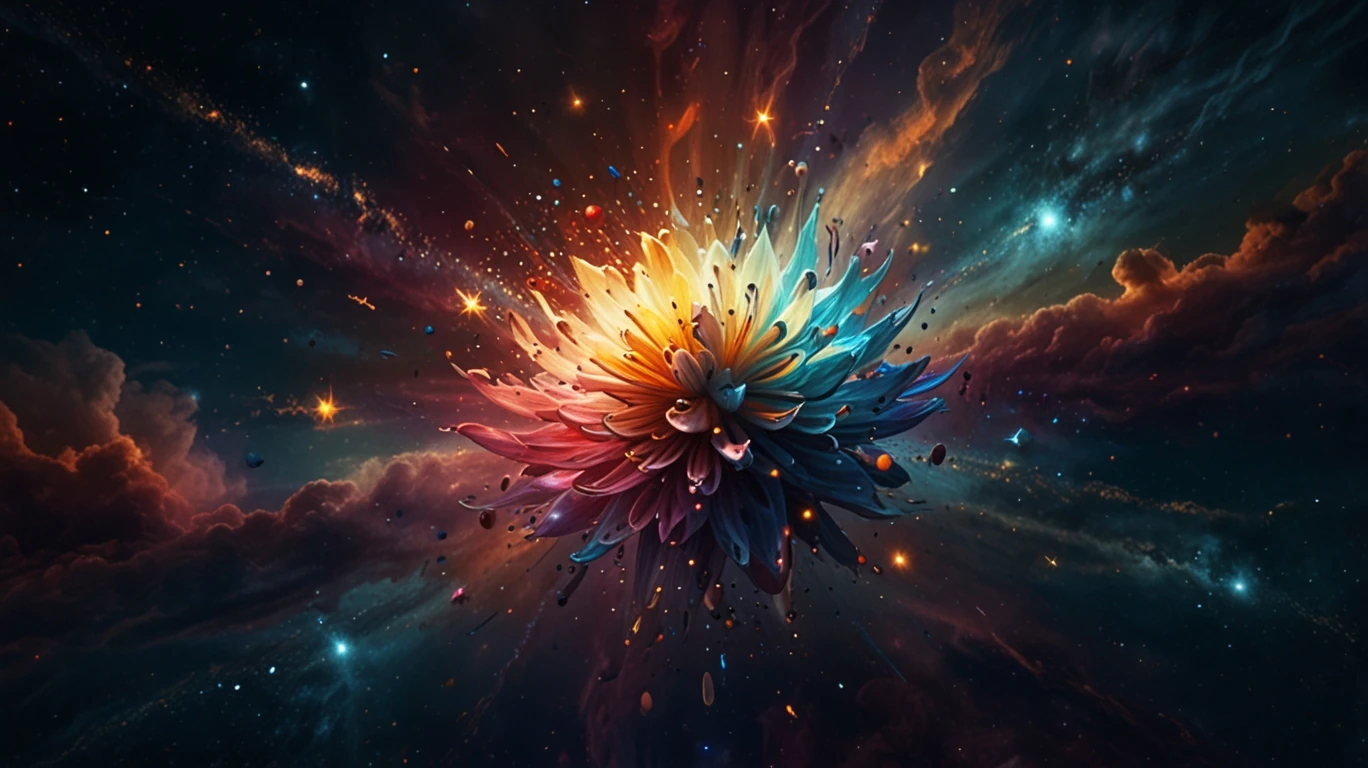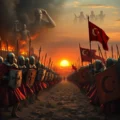Throughout history, humans have tried to understand how the universe began. Different religions and cultures have their own stories and explanations. These creation stories often try to answer the big questions about life: where did we come from, why are we here, and what is our purpose?
Despite the differences, many of these religious beliefs share common themes. Let’s explore how various religions explain the beginning of the universe and the key similarities found in these beliefs.

1. Hinduism: The Cosmic Dance of Creation
In Hinduism, the universe is seen as a cycle of creation, destruction, and rebirth. One of the most well-known creation stories is that of Brahma, Vishnu, and Shiva, representing the cycle of life. Brahma, the creator, emerges from a lotus that grows from the navel of Vishnu, the preserver, who rests on the cosmic serpent floating in an endless ocean. Shiva, the destroyer, brings destruction, allowing for rebirth and new creation.
The Rigveda, one of the oldest texts, speaks about a cosmic egg or “Hiranyagarbha” from which the universe is born. Another story describes Purusha, a cosmic being whose sacrifice by the gods leads to the creation of everything.
2. Christianity: Creation by a Single God
Christianity teaches that God created the universe. According to the Bible’s Book of Genesis, God created the universe in six days. God separated light from darkness when he created it on the first day. The sky was formed on the second day. The third day saw the creation of land and sea, and vegetation. On the fourth day, the stars, sun, and moon were created. On the fifth day, birds and sea creatures were brought into existence. At long last, mankind and land animals were made on the sixth day. On the seventh day, God rested.
This story reflects the belief in a single, all-powerful deity responsible for the creation of everything in existence. The Genesis story is central to Christian belief and is symbolic of order, purpose, and divine will.
3. Islam: The Command of God (Allah)
In Islam, the creation of the universe is attributed to the will of Allah. Numerous verses in the Quran detail the steps involved in the creative process. Allah is said to have created the heavens and the earth in six days, similar to the Christian and Jewish stories. However, time in this sense is often understood metaphorically rather than literally.
The Quran also speaks about the “Big Bang,” describing how the heavens and the earth were once joined together and then separated. This is sometimes compared to modern scientific theories about the expansion of the universe.
Islamic teachings emphasize the idea that Allah’s creation was done with purpose and wisdom, and everything in the universe is under Allah’s control.

4. Buddhism: A Universe Without a Beginning
Unlike the religions mentioned earlier, Buddhism does not have a creation story involving gods or divine beings. Instead, it sees the universe as eternal, with no clear beginning or end. The universe goes through cycles of creation and destruction, much like in Hinduism.
According to Buddhist cosmology, there are many worlds or realms that go through their own cycles of birth, existence, decay, and rebirth. The focus is more on the suffering and eventual enlightenment of beings rather than on how the universe came into existence.
5. Judaism: Creation by God
Judaism, like Christianity and Islam, believes that God created the universe. The Torah, the central text of Judaism, includes the Book of Genesis, which provides the same creation account found in Christianity. God created the cosmos in six days and rested on the seventh day, known as the Sabbath.
The Jewish creation story emphasizes the importance of humans as caretakers of the Earth and the belief in a purposeful, ordered creation guided by a single divine being.

6. Ancient Egyptian Beliefs: Creation from Chaos
In ancient Egyptian religion, creation began with Nun, the waters of chaos. Out of this chaotic water rose a mound of land, and the first god, Atum, appeared. Atum then created other gods and goddesses, who in turn shaped the world and its people.
The Egyptian story focuses on the idea of life emerging from chaos, with the gods playing an active role in maintaining order (known as Ma’at).
7. Greek Mythology: Gaia and Chaos
Greek mythology starts with Chaos, a formless void. Out of Chaos came Gaia (the Earth), and from her, the sky (Uranus), mountains, and seas. The gods and goddesses that followed shaped the world, and the myths tell stories of their interactions with humans.
Greek creation myths are similar to those of ancient Egypt in that they emphasize the world emerging from chaos and the role of divine beings in the ongoing formation of the universe.
Similarities Across Beliefs
While these religions and cultures have different creation stories, several common themes and ideas emerge:
- A Higher Power: Most of these beliefs involve a higher power or divine being responsible for the creation of the universe.
- Order from Chaos: The concept of creation coming from chaos is prevalent in several religions, such as in Hinduism, Egyptian mythology, and Greek mythology.
- Cyclical Time: Some religions, like Hinduism and Buddhism, see time as cyclical, with the universe undergoing cycles of creation and destruction.
- Purposeful Creation: Many religions emphasize that the creation of the universe was not random but guided by purpose and wisdom, especially in monotheistic religions like Christianity, Judaism, and Islam.
- Human Role: In most belief systems, humans are seen as having a special place in the universe, whether as caretakers of the Earth (Judaism, Christianity, Islam) or as beings striving for enlightenment (Buddhism).
5 FAQs About the Beginning of the Universe in Different Religions
What are some key differences in how religions view the beginning of the universe?
- While Hinduism, Christianity, and Islam describe creation by a divine being, Buddhism teaches that the universe has no clear beginning or end and is eternal.
Do any religions mention concepts similar to the Big Bang theory?
- Some interpretations of the Quran describe the heavens and earth as being joined together and then separated, which some scholars compare to the Big Bang.
How does Hinduism describe the beginning of the universe?
- Hinduism speaks of the universe being created from a cosmic egg or through the sacrifice of the cosmic being Purusha, with gods like Brahma, Vishnu, and Shiva playing key roles.
What role does chaos play in ancient creation stories?
- In ancient Egyptian and Greek mythology, the universe emerged from chaos, with divine beings bringing order to the world.
What is the common theme between monotheistic religions like Christianity, Judaism, and Islam in their creation stories?
- These religions emphasize creation by a single, all-powerful God who creates the universe with purpose and wisdom.


